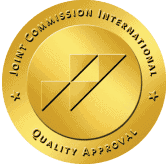You deserve compassionate, evidence-based treatment that addresses both the physical and psychological aspects of barbiturate dependency. Professional treatment centers in San Diego understand the unique challenges you face and provide comprehensive care designed to help you reclaim your life. Take your first step toward recovery today.
What are the warning signs of barbiturate addiction?
Recognizing barbiturate addiction early can save your life. You may be struggling with barbiturate dependency if you experience physical, behavioral, or psychological changes that interfere with your daily functioning. Professional treatment centers report that early intervention significantly improves recovery outcomes.
Physical warning signs you might notice:
- Intense drowsiness or sedation during normal activities
- Decreased blood pressure and heart rate
- Dizziness and loss of muscle coordination
- Slurred speech and impaired motor skills
- Respiratory depression or shallow breathing
- Tolerance requiring higher doses for the same effect
- Physical withdrawal symptoms when stopping use
- Tremors or shaking when the drug wears off
Behavioral changes that indicate addiction:
- Poor concentration and memory problems
- Intoxicated behavior without alcohol consumption
- Impaired interpersonal relationships and social skills
- Reckless decision-making and uncharacteristic boldness
- Neglecting responsibilities at work, school, or home
- Doctor shopping to obtain multiple prescriptions
- Lying about medication use or hiding pills
- Continuing use even when facing negative consequences
Psychological symptoms you may experience:
- Euphoria followed by severe mood swings
- Irritability and agitation between doses
- Confusion and disorientation
- Hallucinations or paranoid thoughts
- Memory loss and cognitive impairment
- Anxiety and panic when unable to access the drug
- Depression and feelings of hopelessness
- Obsessive thoughts about obtaining and using barbiturates
Why is barbiturate withdrawal dangerous without medical supervision?
Barbiturate withdrawal can be life-threatening and requires immediate medical attention. You should never attempt to stop using barbiturates without professional supervision, as withdrawal symptoms can escalate rapidly and cause serious medical complications. Treatment centers emphasize that medically supervised withdrawal is essential for your safety.
Life-threatening withdrawal symptoms include:
- Grand mal seizures that can cause permanent brain damage
- Delirium tremens with severe confusion and agitation
- Cardiovascular collapse and circulatory failure
- Respiratory arrest requiring emergency intervention
- Hyperthermia and dangerous body temperature fluctuations
- Severe dehydration and electrolyte imbalances
- Psychosis with hallucinations and paranoid delusions
- Coma in severe cases of untreated withdrawal
Early withdrawal symptoms you might experience:
- Severe anxiety and panic attacks
- Insomnia and sleep disturbances
- Tremors and muscle spasms
- Nausea and vomiting
- Profuse sweating and chills
- Headaches and sensitivity to light
- Rapid heart rate and elevated blood pressure
- Intense cravings for barbiturates
Medical professionals use specific protocols to manage withdrawal safely, including gradual tapering schedules and supportive medications. You deserve professional care that monitors your vital signs, manages complications, and ensures your comfort throughout the withdrawal process.
The most effective therapeutic approaches for barbiturate addiction recovery
Evidence-based therapies form the foundation of successful barbiturate addiction treatment. You’ll work with licensed professionals who use proven methods to help you understand your addiction, develop healthy coping skills, and build a sustainable recovery plan. Treatment centers report that combining multiple therapeutic approaches produces the best outcomes.
Cognitive Behavioral Therapy (CBT) helps you change destructive patterns:
CBT teaches you to identify triggers, challenge negative thoughts, and develop healthier responses to stress and cravings. You’ll learn practical skills for managing difficult emotions without turning to barbiturates. Research shows that 65% of individuals who complete CBT maintain long-term recovery from substance use disorders.
Dialectical Behavior Therapy (DBT) builds emotional regulation skills:
DBT focuses on helping you manage intense emotions, improve relationships, and develop distress tolerance. You’ll practice mindfulness techniques, communication skills, and crisis survival strategies. This therapy is particularly effective if you struggle with mood disorders alongside barbiturate addiction.
Motivational Interviewing enhances your commitment to change:
This collaborative approach helps you explore your own reasons for recovery and resolve ambivalence about treatment. Your therapist will guide you to discover your personal motivations for change rather than imposing external pressure. This method increases treatment engagement and long-term success rates.
Family therapy addresses relationship dynamics:
Addiction affects entire families, and healing often requires addressing these relationships. You’ll participate in sessions that improve communication, rebuild trust, and educate family members about addiction and recovery. Family involvement significantly improves treatment outcomes and reduces relapse risk.
What medical support do you need during barbiturate addiction treatment?
Medical care is essential throughout barbiturate addiction treatment due to the serious health risks associated with this substance. You’ll receive comprehensive medical evaluation and ongoing monitoring to address both acute withdrawal symptoms and long-term health consequences. Treatment centers employ medical professionals who specialize in addiction medicine.
Medical detoxification ensures your safety:
Medical detox involves 24/7 supervision by healthcare professionals who monitor your vital signs, manage withdrawal symptoms, and prevent life-threatening complications. You’ll receive medications to reduce seizure risk, control anxiety, and maintain cardiovascular stability. This process typically takes 7-14 days but varies based on your individual needs.
Medication-assisted treatment supports recovery:
While there are no FDA-approved medications specifically for barbiturate addiction, doctors may prescribe medications to manage co-occurring mental health conditions, sleep disorders, or anxiety that contribute to your substance use. You’ll work with psychiatrists who understand the complex relationship between mental health and addiction.
Ongoing medical monitoring protects your health:
Regular medical check-ups throughout treatment help identify and address health problems caused by barbiturate use. You may need treatment for liver damage, cardiovascular issues, or neurological problems. Medical professionals will coordinate with your therapy team to ensure comprehensive care.
Nutritional support aids healing:
Barbiturate addiction often leads to poor nutrition and vitamin deficiencies. You’ll receive nutritional counseling and may need supplements to restore your body’s natural balance. Proper nutrition supports brain healing and improves your energy levels during recovery.
How long does barbiturate addiction treatment take?
Recovery from barbiturate addiction is a gradual process that varies based on your individual circumstances, severity of addiction, and personal goals. You’ll progress through different levels of care as you build strength and develop recovery skills. Treatment centers design programs to provide the right level of support at each stage of your journey.
Initial treatment phase (30-90 days):
You may begin with drug rehab if you need intensive medical supervision and 24/7 support. This phase focuses on medical stabilization, withdrawal management, and beginning therapy work. Many people then transition to PHP for continued intensive treatment while starting to rebuild daily routines.
Intensive treatment phase (3-6 months):
PHP and IOP provide structured support while you develop coping skills and address underlying issues that contributed to your addiction. You’ll participate in multiple therapy sessions weekly and begin practicing recovery skills in real-world situations. This phase is crucial for building a strong foundation for long-term recovery.
Maintenance phase (6-12 months and beyond):
OP provides ongoing support as you maintain recovery and continue personal growth. You’ll meet with counselors regularly to address challenges, prevent relapse, and work toward your long-term goals. Many people continue some form of treatment support for years to maintain their recovery.
Factors that influence treatment duration:
- Length and severity of barbiturate use
- Presence of co-occurring mental health disorders
- Previous treatment experiences and relapses
- Social support system and family involvement
- Medical complications from drug use
- Personal motivation and treatment engagement
- Environmental factors and stress levels
- Access to ongoing support resources
What makes barbiturate addiction treatment successful in San Diego?
San Diego offers unique advantages for barbiturate addiction recovery, combining excellent medical facilities with a supportive environment for healing. You’ll benefit from year-round mild weather, diverse treatment options, and a strong recovery community. Treatment centers in the San Diego area report higher success rates due to these environmental and resource advantages.
Comprehensive medical resources:
San Diego’s healthcare system includes specialized addiction treatment facilities, university medical centers, and experienced addiction medicine physicians. You’ll have access to cutting-edge treatment approaches and medical technologies that support recovery. The region’s medical community collaborates to provide integrated care for complex addiction cases.
Supportive recovery environment:
The San Diego area offers numerous sober living communities, support groups, and recovery-focused activities. You’ll find hiking groups, beach activities, and cultural events that support a healthy lifestyle in recovery. The region’s emphasis on wellness and outdoor activities provides natural alternatives to substance use.
Evidence-based treatment approaches:
Treatment centers in San Diego use the latest research-based methods for barbiturate addiction recovery. You’ll receive care based on proven protocols that combine medical treatment, behavioral therapy, and holistic approaches. Facilities regularly update their programs based on new developments in addiction science.
Diverse treatment options:
San Diego offers various treatment settings, from luxury facilities to community-based programs, ensuring you can find care that fits your needs and budget. You’ll have access to specialized programs for professionals, young adults, or individuals with co-occurring disorders. This diversity allows for truly personalized treatment approaches.
Contact Assure Recovery
Don’t wait another day to begin your recovery from barbiturate addiction. Help is available now, and you deserve professional treatment that addresses your unique needs with compassion and expertise. Assure Recovery provides comprehensive barbiturate addiction treatment programs designed to help you achieve lasting recovery.
Take the first step toward freedom from barbiturate addiction. Contact Assure Recovery now through the contact page or learn more about the treatment approach on the about page. Your recovery journey begins with a single phone call – make that call today.



